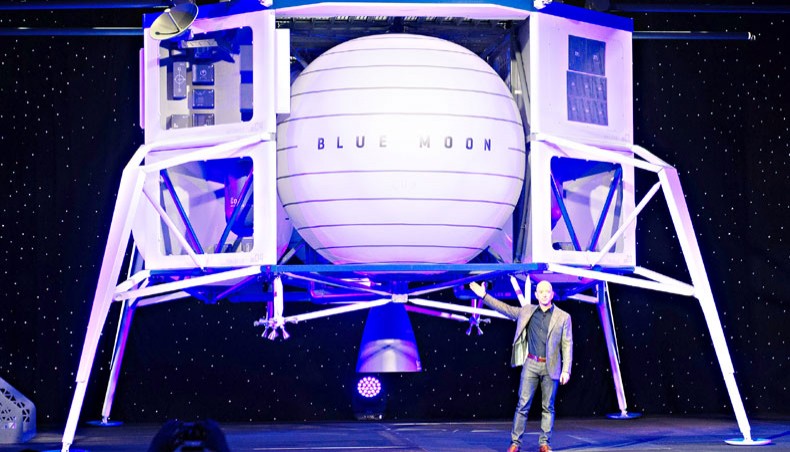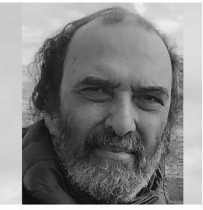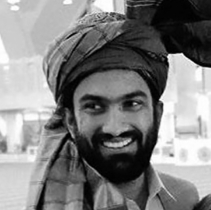
Jonathan Cook
HAVING written about the media for several years now, I have become ever more sensitive to how we, as news consumers, are subject to ideology — the invisible, shifting sands of our belief system.
Those beliefs are not inbuilt, of course. How could they be? We are not born with pre-loaded software like a computer — even if our mental ‘hardware’ may shape what kind of information we are capable of processing and how we process it.
And whatever we may imagine, our belief system is not really self-generated, dictated by life-experiences. It isn’t only real-world events that determine our values and views. Events and experiences are interpreted and given meaning by those beliefs and values. Which is why it is quite possible — common, in fact — for us to hold contradictory beliefs at the same time: like worrying about the threat posed to our children’s future from climate change while supporting political systems committed to building more roads and runways.
Psychologists have a term for this phenomenon: cognitive dissonance.
Our ideological landscape is, rather, socially constructed and largely imposed on us from outside. Ideology frames experiences for us, adding a hidden layer of interpretation that encourages us to make sense of the world in useful ways. The most liberating question one can ask, therefore, is: to whom is any particular ideology useful?
WE INHERIT much of our ideology from parents and teachers. But ideology is not static. It is adaptive. Our assumptions, beliefs and values subtly change over time. And they change as the needs of the powerful change.
The most powerful among us are powerful precisely because they create the dominant ideology — the thread of narrative that ties together what we imagine to be our personal understanding of why the world is as it is. That is why elites, whether the state or corporations, prioritise capturing the main channels of communication. They make sure to own and control the mass media.
When powerful external actors are framing the world for us — whether it be through broadcasting, newspapers or social media — they get to decide what matters, what should be prioritised, what is right.
That picture is particularly evident in the United States, where six corporations control almost everything the American public hears, sees and thinks — and, via Hollywood, much of what the rest of us think too. Even in the United Kingdom, where a trusted public broadcaster, the BBC, dominates much media output, the situation is little different. As the British state itself has been increasingly captured by a corporate elite, the BBC is run on its behalf. Just look at who has been appointed the BBC’s current chairman.
THE role of the corporate media is to subtly alter ideology — the way we see and think about the world — based on the most pressing needs of corporations as they pursue a consistent strategy of increasing profits and accumulating greater wealth.
The biggest limiting factor on what the media can make us, the public, believe and how quickly we can be made to think new thoughts is not physical reality. It is the risk that too sudden a shift in ideology will create too much cognitive dissonance, to the point where we can no longer sustain our belief system.
The breakdown of an ideological system can manifest at the personal level in a range of emotional and mental health states, including anxiety and depression, as well as chronic illness. But that is of little concern to corporate elites. Such ‘conditions’ can be medicated — and to great profit, when we can easily be encouraged to buy drugs for our disease (dis-ease) or to go on shopping sprees to make us ‘feel’ happier.
The real problem is when the breakdown in the dominant belief system is shared widely — becomes collective — and threatens the elites’ continuing grip on power. That path leads to political upheaval and revolution, when facts suddenly appear to be no longer solid but dubious, or even nonsensical, ideological claims.
For hundreds of years, monarchs ruled Europe’s populations based on a supposed ‘divine right’. But that claim was no more preposterous than the current belief that our elites run so-called western civilisation based on an ‘economic right’ — that through the survival of the economically fittest, they have risen to the top to guide our societies to a better, more efficient world in which we all ultimately prosper.
THE insanity of our current economic reality is well illustrated by a new, self-serving ideological movement among the super-rich. Their emotional investment in their right to remain immensely wealthy is naturally much stronger than the investment of the rest of us in their staying rich. Which is one reason billionaires are capable of coping with much greater levels of cognitive dissonance when justifying the continuation of the current economic order.
The greatest ideological challenge facing the super-rich is imminent climate collapse: how to rationalise an economic system designed to satisfy their hunger for profit, and the continuation of their privilege, when it is so obviously causing that collapse.
Some have fled into ridiculous schoolboy fantasies — the billionaires’ equivalent of derangement. Elon Musk and Jeff Bezos are pouring money — while offsetting it against tax — into the escapism of space colonies, premised on the same technological exploitation and monetisation of nature that have been rapidly making our own planet uninhabitable.
Others are looking in more practical, if equally futile, directions. Reid Hoffman, the co-founder of LinkedIn, has estimated that half of his fellow billionaires in Silicon Valley have bought what he calls ‘apocalypse insurance’, investing in safe-haven islands and luxury underground bunkers. Fancifully, they imagine that this will be their life-belt when the planet’s climate system breaks down beyond repair.
BUT even these approaches seem reasonable compared to another ideology the super-rich are coalescing around that has been labelled ‘longtermism’, an off-shoot of the ‘effective altruism’ movement. As ever with language used by the powerful, reality is being inverted. The intention is to deceive — themselves as well as us. There is nothing long-term or altruistic about this new cult. It is simply a rebranding of Gordon Gekko’s mantra ‘greed is good’, even when that greed has been outed as suicidal.
Faced with a disastrous near-future for which they are supremely responsible, the super-rich wish to telescope our attention into the distant future — thousands and millions of years hence. By focusing on aeons ahead, they can distract from the immediate present. After all, they won’t be around to be blamed for what happens — if anything human is happening — 10 or 20 millennia hence.
One of their gurus is Nick Bostrom, an Oxford University philosopher, who has contributed an academic gloss to this new religion masquerading as rationalism. He argues that, seen from tens of thousands of years in the future, the looming climate catastrophe won’t seem such a big deal — it will look as important as the crimes of the Roman empire or Genghis Khan appear to us today.
The imminent suffering of millions or even billions of human beings from rising seawaters, wildfires, droughts and food shortages pales when compared to the survival of the few who will re-seed the planet and wider universe with conscious life. With the expansion of technologies already under development (by the billionaires), there will be many, many trillions of future biological humans colonising the universe or digital equivalents living in a post-human world.
In Bostrom’s words: ‘The breakdown of global civilisation is, from the perspective of humanity as a whole, a potentially recoverable setback’. Or as he puts it more bluntly, what is coming is ‘a giant massacre for man, a small misstep for mankind’.
Jonathan Cook won the 2011 Martha Gellhorn Special Prize for Journalism.





































